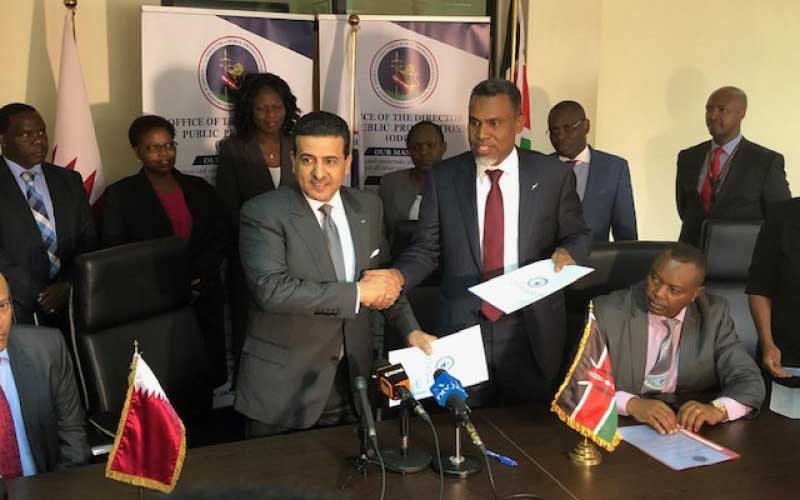×
The Standard e-Paper
Stay Informed, Even Offline

Kenya and Qatar have signed a deal to strengthen the fight against cross-border crime and corruption.
The Director of Public Prosecutions Noordin Haji yesterday signed the agreement with the Qatar Attorney General and Chairman of Rule of Law and Anti-Corruption Center (ROLACC) Dr Ali Bin Fetais Al Marri.